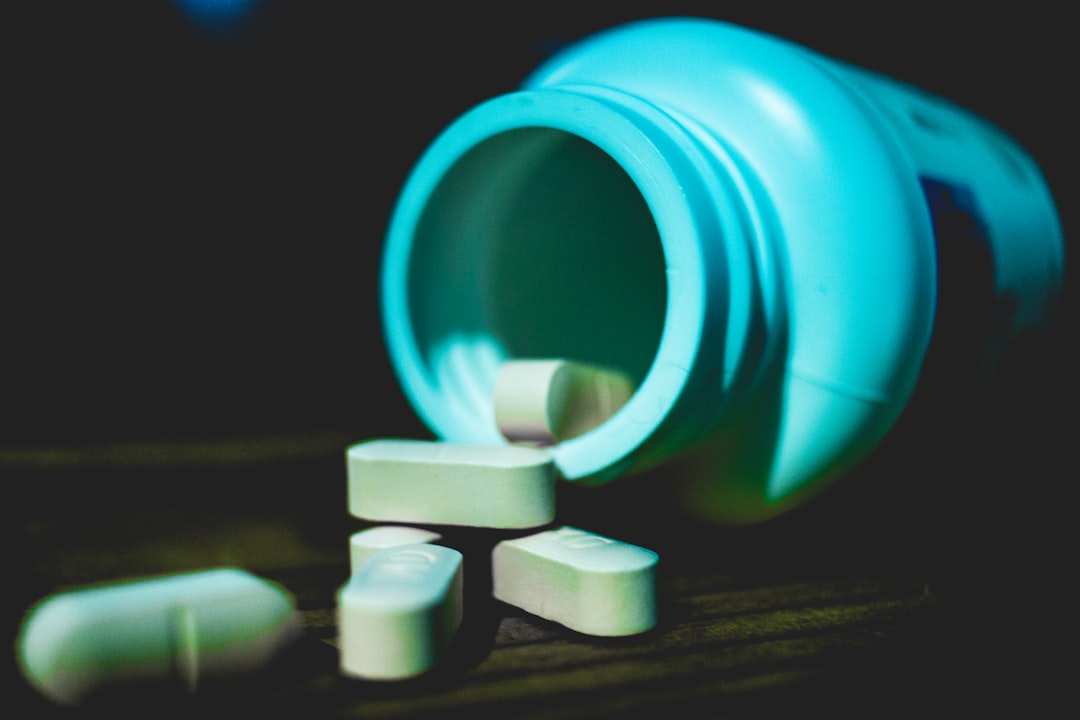Everything you've ever wanted to know about smart drugs...
With arguably somewhat of a normalisation of drugs in our culture, with more people advocating for decriminalisation, there is one area of drugs that is often over looked. If it is not a medicine, when the word drug is thought of, people usually picture recreational use – people in clubs partying, smoking a blunt after lectures – but there’s another use that’s becoming more common.
Popularised by movies such as Limitless and Lucy, the idea of a mind-altering drug that could make us a better version of ourselves appeals to a lot of people. Smart drugs promise to be the golden bullet to cope with everything, from a busy lifestyle to exam stress, but there are many misconceptions about them.
Photo by Thought Catalog / Unsplash
There are various types of smart drugs, and they fall into categories that often overlap. There are controlled substances to nootropics, smart drugs can be prescription medicines or bought in boots.
Ritalin (known chemically as methylphenidate) and Adderall (amphetamines) are central nervous system stimulants. They are used as a prescription medicine to treat ADHD, but are also class B drugs. Many people don’t realise that Adderall is clean speed that you can buy on the streets, arguably indistinguishable once in the brain. Both drugs main mechanism is to increase dopamine in the brain. Ritalin does this by blocking a dopamine transporter protein – which is exactly how cocaine works. While these drugs are not thought to be addictive when the correct dosage is taken when prescribed by a doctor, the abuse of them can certainly be not only dangerously addictive, but can cause lasting changes to your brain.
Rave reviews you read online are most likely to be stories of the placebo effect
Modafinil, one of the most famous smart drugs, is more widely used as it is a lot more accessible. Modafinil is considered a prescription drug in the UK, but can easily be ordered online. Sold as a narcolepsy drug, Modafinil allows students to stay awake over night to finish that coursework left to the last minute. It is also used as a study aid, as it has been shown to increase alertness, planning, working memory and concentration. These effects are especially noted in sleep deprived individuals.
Below the prescription drug level lies a class of drugs less well known. Nootropics are a class of drugs which do not have the same strong effects of psychotropic drugs. They, by definition, have less side effects, are less toxic and are considered safe and healthy. The most commonly used nootropic, whether people realise it or not, is caffeine. From your daily double espresso before a 9am lecture, to those Pro Plus pills you pop like candy before a deadline, the main ingredient is caffeine.
Those who have other health problems, or even an unhealthy lifestyle, are at a higher risk of side effects and damage.
Piracetam is often considered the original nootropic, and has led to the rise of other racetams being used for cognitive enhancement. They are used clinically in preventing cognitive decline and protection from ischemia and cerebral trauma, but have also been shown to improve memory recall.
Noopept is another famous nootropic developed in Russia, which isn’t a racetam but is similar. Other substances people supplement can vary from vitamins and Omega 3s to natural herbs such as green tea and Lions mane.
What are they like to take?
With most non-prescription/controlled substances, you will not feel that different. Many rave reviews you read online about it being revolutionary are most likely to be stories of the placebo effect or even “fake news” advertisements by people in the business who have a vested interest in you buying their products. There is no biological free lunch. People often take nootropics expecting a lot and are disappointed, as most cognitive enhancers have subtle effects, or even unnoticeable.
The risks
Problems arise when students don’t research what they plan to ingest. They take it off the recommendation of a friend having not looked at the side effects, doses and contraindications (especially if you take other medicines). Some drugs can even cause death in combination with certain foods such as cheese. Those who have other health problems, or even an unhealthy lifestyle, are at a higher risk of side effects and damage.
Once people become accustomed to taking a drug, it can become a normality to them. This can lead to being too liberal with the dose. Unknown to most, but a higher dose of a drug does not automatically increase the effects of the drug, it can completely alter them and even decrease them. Much like goldilocks, both too much and too little can mean you don’t get the desired effect. Long term use can lead to people thinking they’ve become tolerant, when in fact the placebo honeymoon period has ended, so they increase the dose to dangerous levels.
Photo by Jonathan Perez / Unsplash
There is limited knowledge on the long-term effects of many drugs in humans. Long term use leads to permanent changes in your brain. It is not uncommon for people to let taking smart drugs become normal, and they may become dependent on them to work, or even develop drug seeking behaviours.
Lastly, just because it’s on amazon, doesn’t mean it is safe. Just because your mate Kevin took “like 20 pills” the night before the exam, it doesn’t mean you won’t have a bad reaction. Mechanisms of drugs and supplements are complex, often poorly understood and can affect people differently due to genetics. Something from Holland and Barret can have just as dire consequences as a prescription medicine, especially if miss-used.
Having been using a wide range of cognitive enhancers and supplements over the past 5 years, I’ve concluded this: most smart drugs do not make you smarter. They aren’t a magic pill like NZT-48 (obviously), and they won’t magically double your IQ. They may help you perform tasks better, concentrate longer, motivate you or even clear your head for a test; but the only way to get smart is to learn, read and live a healthy lifestyle. Smart drugs might help you do the learning faster, but they’re no substitute for a healthy lifestyle of sleeping well, exercising and putting in the hard work.
Featured Image: Unsplash / freestocks.org











